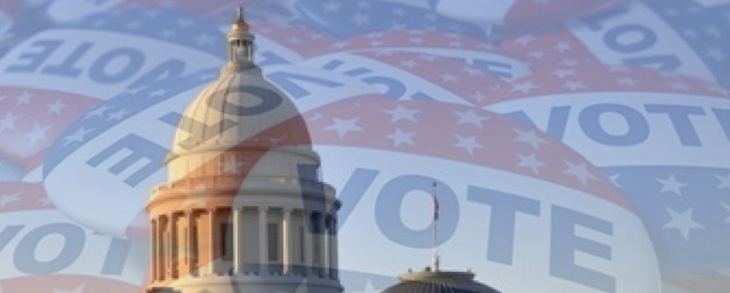State Rep. Sullivan and challenger Peck debate includes telemedicine, tort reform
by May 6, 2018 6:31 pm 668 views

State Rep. Dan Sullivan and Republican primary challenger Dr. Cole Peck believe the state should reconsider its telemedicine regulations, but each would have a different approach. The two men seeking the House District 53 seat debated Friday (May 4) at the Political Animals Club meeting held at the Jonesboro Regional Chamber of Commerce.
The primary is slated for May 22. Early voting begins Monday (May 7). Sullivan is seeking a third term in the Arkansas House, and this is the first time Peck has sought a political office.
Telemedicine is the remote use of technology by a patient and doctor. It can be visual, audio, or both. Sullivan thinks telemedicine could save money and time, he said. Patients would still have the option of going to a regular medical clinic and seeing a doctor in person if they chose to do so, he said.
“This is about personal choices … this is about freedom,” he said.
Peck agreed the state should reconsider some of its regulations when it comes to telemedicine, but as a practicing doctor he still thinks the best option is for a patient to be examined in real life by a doctor. Peck said he might support legislation that would allow for more visual telemedicine options, but he doesn’t think an audio-only option is a good idea.
“I support telemedicine, but it’s got to be done right,” he said.
Both men agreed the main problem in healthcare is cost. Another way to drive costs down would be to allow advanced practice nurses, or APN’s, to work on their own in the state, Sullivan said. Many states allow APN’s to perform many of the same services as a licensed doctor, and it would save patients money, and would help rural areas that have trouble attracting doctors, he said.
Peck thinks APN’s should have more latitude in the state, but there should be standards. Peck said he wouldn’t worry about experienced APN’s, but those fresh out of school probably need to first work under the umbrella of a physician, he said.
One area the men completely disagree with one another is tort reform. It’s an issue Arkansas voters will decide this November. A tort reform constitutional amendment is on the ballot after the Arkansas Senate voted in 2017 to allow a vote on the issue. The amendment would limit punitive damages to the greater of $500,000 or three times the compensatory judgment, noneconomic damages to $500,000, and attorneys’ contingency fees to one-third of the judgment. It also would give the Legislature increased oversight over the Arkansas Supreme Court’s procedural rules.
Frivolous lawsuits help drive healthcare costs up, and there should be caps on how much money can be awarded in these cases, Peck said. He has be sued unsuccessfully twice, he said. Sullivan is opposed to tort reform. He said he thinks these types of decisions should be made by juries, not legislators. Caping how much attorneys can make or how much a complainant with damages can retrieve isn’t a good system, he said.
